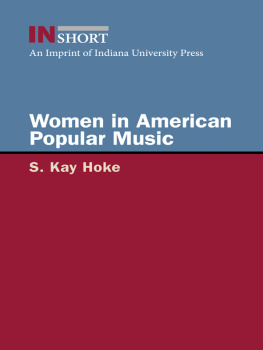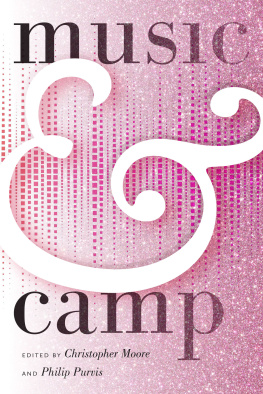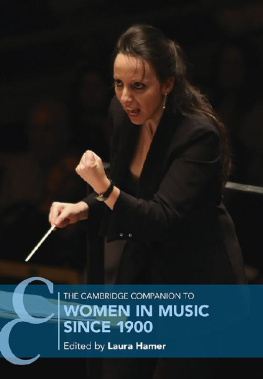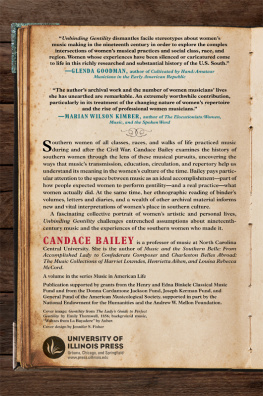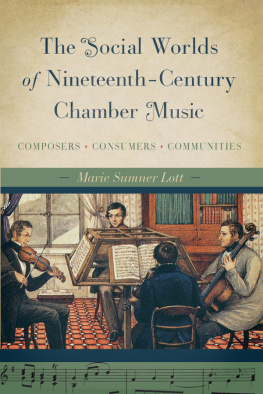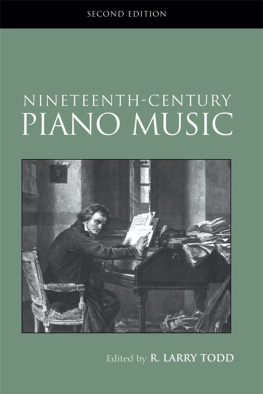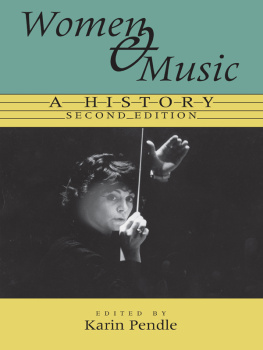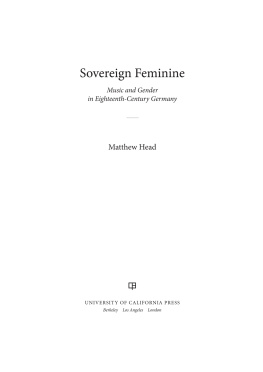New-Found Voices
Third Edition
First published 1998 by Ashgate Publishing
Reissued 2018 by Routledge
2 Park Square, Milton Park, Abingdon, Oxon OX14 4RN
711 Third Avenue, New York, NY 10017, USA
Routledge is an imprint of the Taylor & Francis Group, an informa business
Copyright Derek Hyde, 1998
All rights reserved. No part of this book may be reprinted or reproduced or utilised in any form or by any electronic, mechanical, or other means, now known or hereafter invented, including photocopying and recording, or in any information storage or retrieval system, without permission in writing from the publishers.
Notice:
Product or corporate names may be trademarks or registered trademarks, and are used only for identification and explanation without intent to infringe.
Publishers Note
The publisher has gone to great lengths to ensure the quality of this reprint but points out that some imperfections in the original copies may be apparent.
Disclaimer
The publisher has made every effort to trace copyright holders and welcomes correspondence from those they have been unable to contact.
Typeset in Sabon by Intype London Ltd
A Library of Congress record exists under LC control number: 97033014
ISBN 13: 978-1-138-32880-8 (hbk)
ISBN 13: 978-0-429-44841-6 (ebk)
The music extracts from the works listed are printed by permission of:
| Edwin Ashdown Ltd | Liebeslied by Dora Bright |
| Breitkopf & Hartel, Wiesbaden | Hey Nonny No by Ethel Smyth |
| J. Curwen & Sons Ltd, London | March of the Women by Ethel Smyth (Words by Cicely Hamilton) |
| Novello and Company Ltd | Four Songs: Anacreontic Ode The Dance by Ethel Smyth |
| Universal Edition (Alfred A. Kalmus Ltd) | The Wreckers,' The Boatswains Mate by Ethel Smyth |
Acknowledgement is also made to Ash Parochial Church Council for permission to quote from the Vestry Minutes of 1853 and 1858.
When researching material for this book in the 1970s there was, generally, little printed material on the role of women in music. The last two decades have seen, and are seeing a blossoming forth of womens studies, of studies in gender and music and the publication of much new material on women composers of the past. In revising the book for this third edition I have incorporated references to this material where appropriate and looked afresh at the varied contribution of women artists, composers, teachers and writers in nineteenth-century England. Their achievements are considered against a backcloth not only of music history but also of the societal position of women generally in the nineteenth century.
My interest arose initially from purely practical considerations. As conductor of a womens college choir I found it increasingly difficult to discover original music, particularly of the past, for female voices. Whilst looking into this lost repertoire I became particularly interested in the whole question of the neglect of the female in music, and nineteenth-century England, with its opening up of opportunities in music and for women generally, provided the focus for this study.
I am indebted to Emily Lowe, formerly Professor of Music at Eastern Michigan University for help over many years with repertoire; to Dr Arnold Bentley for his most valued criticism and advice and to Dr Kenneth Pickering for his practical assistance in the preparation of the text. To Lucy Ross for her patient work in preparing the typescript, Dr Dalwyn Henshall for the printing of the music examples and to Lawrence Dean, music librarian at Canterbury Christ Church College, I am indeed most grateful.
Finally, and not least, to Margery Hyde for her support and encouragement over many years I do record my thanks.
DEREK HYDE
Women have arrived at excellence in every art in which they have striven If the world has long remained unaware of their achievements, this sad state of affairs is only transitory. both list a female composer - Elisabeth-Claude Jacquet de la Guerre; yet the accepted musical canon in Western music today contains no evidence of women composers. What silenced the musical propensity of women and reduced their contribution to the peripheries of Western art music?
The growth and interest in womens studies has revealed a wealth of music composed by women throughout the ages: many reasons are advanced for its neglect until very recent times. What is certain is that wherever the opportunity arose, whether in convent, court or the home, three areas where it was deemed acceptable for women to compose and make music, there was no shortage of ability. Herein lies the first reason for the neglect by the musical world at large: this was music-making in the closed or private world. It was not acceptable for women to appear in the public domain as musicians. As performers, they grudgingly gained acceptance in the late eighteenth and (increasingly so) nineteenth centuries, but as composers in competition with men they were operating outside their allotted sphere: theirs the private or domestic world, the Angel in the House of Coventry Patmores poem.
A canon of musical taste, once formed, tends to be exclusive and also self-perpetuatinghave much relevance. One is inclined to agree with the conclusion which Marcia Citron arrives at when she says
that there are no stylistic traits essential to all women nor exclusive to women, but certain tendencies, perhaps related to subject positioning or socialization, seem to manifest themselves in many works by women. Such tendencies are also available to men. The absence of any specifically female style is another indication not only of the difficulty of applying absolute meanings to music but of the fact that women have been socialized largely by male norms. ( Citron: 1993, p. 11)
By far the most crippling influence in the past that has detracted from female creativity in European music has been the male-dominated Christian religions and lack of sexual and economic freedom. Whilst the study of the role of women in nineteenth-century English music is more concerned with the increasing involvement of women in all facets of music-making and music education, many of the issues that are more pressing in feminine music studies in the latter part of the twentieth century have their origins in the historical and societal aspects of the nineteenth century.
The events and cross currents of any chosen period of history are diverse, though often related, and the nineteenth century, which witnessed the transformation of society from an agricultural to an industrial one in several European countries (though firstly and most intensely in England), presents a bewildering spectrum of reformist movements united in their aim to better society. Mary Wollstonecraft had drawn attention to the position of one very large section of society in the closing years of the eighteenth century. Her A Vindication of the Rights of Woman (1792) had focused attention on the subservient role and restricted opportunities that women in England suffered from, and had thereby set the long debate going,Fry, Harriet Martineau and Florence Nightingale, in the first part of the century, more than exemplified the practical achievements women were capable of in their chosen fields of prison reform, economics and nursing. They were the pioneers, challenging ingrained predispositions, and by their prominence, began the slow process of changing both mens and womens attitudes to feminine roles. To a lesser extent, prima donnas and actresses who contributed to this gradual metamorphosis, often by their more liberated behaviour, challenged the rigid moral conventions which were outwardly subscribed to by society in general.



